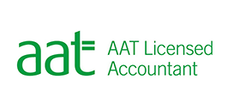|
If you have paid the additional Stamp Duty Land Tax (SDLT) on the purchase of a dilapidated property you could be due a refund from HMRC. The government introduced SDLT surcharges on 1st April 2016 for individuals purchasing a second residential property, or when a residential property is purchased by a limited company. These measures were supposed to discourage individuals from purchasing additional residential properties and support the housing market; however tribunal decision in the case of P N Bewley Ltd V HMRC [2019] established that an SDLT surcharge is not payable where a property is not habitable at the time of purchase. Here is our quick and easy summary of the case; however, you can read the full tribunal decision here.
Outcome
If you want to claim a tax rebate or exemption on the above basis, HMRC are likely to want to see evidence in relation to the condition of the property. HMRC will want to see evidence of the properties condition prior to and at the time of the sale (transaction) to ensure that the property has not been damaged on purpose for tax avoidance purposes. If you are purchasing a dilapidated property, it is recommended to try to get as much evidence as possible, as close as possible to the date of the purchase and before any work has started. If you would like assistance with filing your SDLT return, claiming an SDLT rebate or exemption please contact us on info@intact-accounting.co.uk.
1 Comment
David Burton
21/5/2020 08:38:35
Great work, why was £1000 still payable?
Reply
Leave a Reply. |
Archives
November 2020
Recent Posts
Capital Gains Tax on Incorporation of a Property Rental Business
Have you overpaid Stamp Duty Land Tax (SDLT)? Other Implications of Property Business Incorporation SDLT on Property Partnership Incorporation Income Tax for Non-residents investing in the UK residential property Advantages & disadvantages of using a company for buy to let investments Qualifying Loan Interest The Ramsey Case, would your property portfolio qualify as a business? Joint Property Ownership Property Tax |
Privacy Policy
The information contained in this website is intended for reference, education and informational purposes only. The contents are based on, or derived from, information generally believed to be reliable, although Intact Accounting Limited accepts no liability with the user’s reliance on it.
The Information contained in or provided from or through this website does not constitute financial advice, investment advice, trading advice or any other advice. You should undertake independent due diligence and consultation with a professional financial advisor relating to these matters. You understand that using any or all of the information contained in this website is at your own risk.
The information contained in this website is intended for reference, education and informational purposes only. The contents are based on, or derived from, information generally believed to be reliable, although Intact Accounting Limited accepts no liability with the user’s reliance on it.
The Information contained in or provided from or through this website does not constitute financial advice, investment advice, trading advice or any other advice. You should undertake independent due diligence and consultation with a professional financial advisor relating to these matters. You understand that using any or all of the information contained in this website is at your own risk.
For more information contact us today on info@intact-accounting.co.uk to arrange a free no obligation initial consultation with one of our qualified consultants.
Intact Accounting Limited, 8c Canons Corner, Edgware, London, HA8 8AE.
Intact Accounting Limited, 8c Canons Corner, Edgware, London, HA8 8AE.
COPYRIGHT © 2014 - 2021
INTACT ACCOUNTING LTD
ALL RIGHTS RESERVED
INTACT ACCOUNTING LTD
ALL RIGHTS RESERVED







